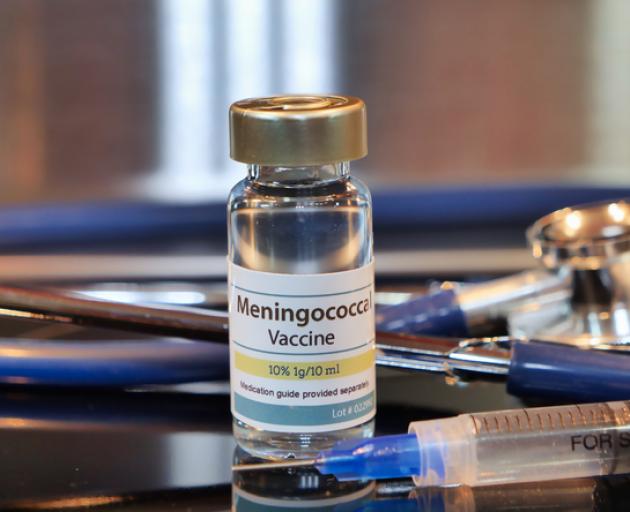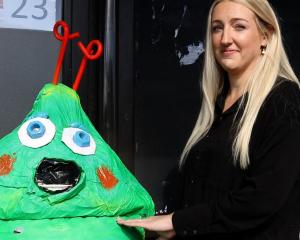
Meningococcal disease causes two very serious illnesses - meningitis, an inflammation of the lining of the brain and spinal cord, and septicaemia, a poisoning of the blood.
Young children and young adults are at high-risk of getting the disease, which has dangerously similar symptoms to the common flu.

Her father Paul Chapman said even though she was not eligible for the free vaccination, if there had been more awareness he would not have hesitated to pay for a vaccine.
"It's not an equitable situation, both the financial side of things and the awareness," he said.
"In my mind, you need to be creating funding to ensure everyone has an opportunity to get vaccinated if they're in that vulnerable group.
"You can't say to yourself, you know, my child is healthy so they should be fine.
"Meningitis can hit any of these young people at any time."
Chapman also believes not enough has been done by health authorities to highlight meningitis vaccinations.
"I didn't get Miwa vaccinated because I didn't know there was one, and I don't think many people would know that these vaccinations are free for young people living in close-living situations," he said.
"All three of these deaths could have been avoided if there had been more publicity around the availability of vaccinations.
"No young person, but especially any teenagers living in student halls or flats, should be unvaccinated against meningitis. The risk is too high and the results too terrible."
Miwa passed away from Meningococcal Septicaemia less than 24 hours after contracting it.
"Words can't express the impact this tragedy has had on me and my family," Chapman told the NZ Herald.
"It was especially sad for me to learn that the Ministry of Health had taken some important steps last year to increase the availability of meningitis vaccinations for young people and that this could have saved my daughter's life."
Tarsha Boniface, who lost her 18-year-old daughter in 2018, said seeing more deaths each year to the disease is a heartbreaking and frustrating cycle.
"Every year we're having to relive it. Every year we see a story come up and it just breaks our hearts all over again," she said.
Rates of meningococcal have been on a steady rise for almost a decade in New Zealand, with 139 cases and 10 deaths in 2019.
Those rates are higher than many other countries in the OECD, according to the Meningitis Foundation.
Its director Andrea Brady said there are significant amounts of people in high-risk groups and environments without access to vaccinations.
The government expanded its vaccination programme in 2019 to include more high-risk people.

But this is not covering enough people, health experts say.
"For example there is nothing that protects students living in share-house accommodation that would be in their first, second, or third years of university, or young people that aren't going to university but are still living in close quarters with other individuals, or those in multi-generational homes," Brady said.
Private vaccinations against the two common strains, meningococcal B and W, are available, but can cost up to $400.
The Meningitis Foundation has now called on the government for a blanket vaccination programme, which would see all 16-year-olds immunised before they leave high school.
The Immunisation Advisory Centre echoed the call, saying a wide-spread programme is the only way to assure those falling within the current systems gaps can be protected.
Its Medical Director Dr Nikki Turner said there are equity issues that need to be reduced.
"We know from international programmes, when you use it across the community, you reduce the carriage incidents in the back of the throat," Turner said.
"So it offers more protection across the community rather just individual protection [of those vaccinated]."
Turner said the previous vaccination rollout for the meningitis epidemic between 2004 and 2007, which was school-based, was a success.
Many of the infants and young children vaccinated in the programme are now back inside a high-risk age group, but aren't protected anymore by their previous vaccination.
While meningococcal cases have decreased in the wake of Covid-19, Turner said that won't last long.
"We're expecting to see, again, meningococcal rates will start to climb once we reopen our borders. So we do need to be prepared for this."
-RNZ, NZ Herald













